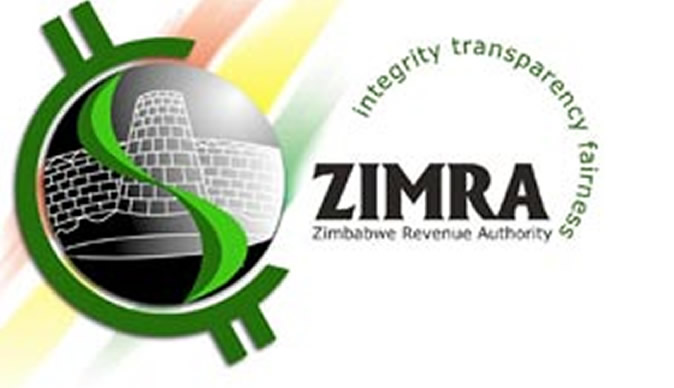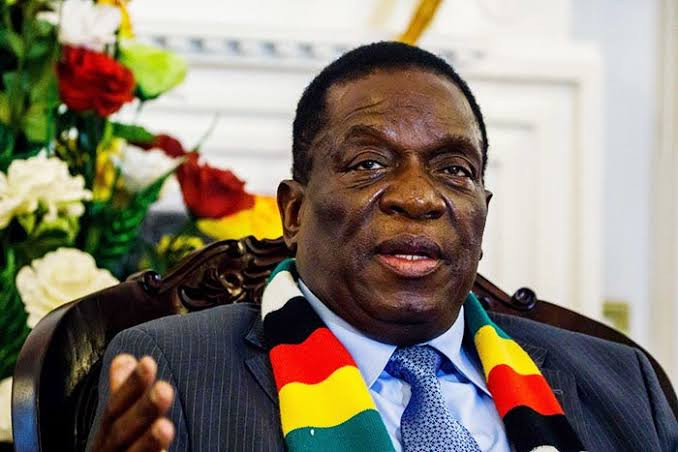
ZIMBABWE Revenue Authority’s (Zimra) failing online tax clearance system is costing companies, especially those importing goods as they end up incurring demurrage costs as well as withholding tax at the border post due to delayed issuance of tax clearance certificates.
strong>BY FIDELITY MHLANGA &MTHANDAZO NYONI
Zimra’s system is struggling to cope with the volume of companies that are scrambling to renew their annual tax clearances for 2018.
Business operators, predominantly in the fast moving consumer goods industry, told Standardbusiness last week that the taxman was unjustifiably charging 10% withholding tax and demurrage fees to most importers because they do not have 2018 tax clearance certificates despite the fact that the authority’s system is failing to provide the certificates.
“They insist on online tax clearances but their system is failing to cope and companies cannot get clearance. Zimra are insisting on the certificates and charge a 10% withholding tax in addition to normal duties — for all importers that do not have the tax clearance certificates yet it is their systems failure not the importers’,” said a business owner who declined to be named.
A tax clearance certificate (ITF 263) is issued by the Zimra commissioner general to a person liable to pay tax, provided that the taxpayers’ tax position is satisfactory.
Benefits of the certificate are that no 10% withholding tax is deducted when payments are made for goods and services supplied, and no presumptive tax will be levied on importations.
“All registered companies have to get a tax clearance certificate online at end of December in order to legally trade the following year. The irony is that Zimra, who issue them, insist on seeing them from importers when doing an import yet it is Zimra which is failing to issue them. So, whilst they are failing, they should not be insisting on them for an importer to clear cargo. It’s all happening this (last) week,” another business owner added.
- Chamisa under fire over US$120K donation
- Mavhunga puts DeMbare into Chibuku quarterfinals
- Pension funds bet on Cabora Bassa oilfields
- Councils defy govt fire tender directive
Keep Reading
Business owners fear being charged millions on standing time for international trucks for importers by Zimra.
“They [Zimra] are quick enough to charge for tax delays yet they should pay for the extra costs borne by the importers because of their inefficiency/ system problem. Imagine we are being charged standing time of R5 000 (about $400) per day per truck standing at border. It quickly adds up and there are many importers in this situation. Zimra is wasting foreign currency but they are not the ones who pay it. They should refund the importers. On 2 trucks I am already charged over R40 000 (about $3 200) this week,” another one said.
Zimra’s head of corporate communications Canisio Mudzimu confirmed that clients were facing challenges in accessing online tax clearance certificates due to huge application volumes but denied that it was charging importers “demurrage fees” at border posts.
“It is acknowledged that some clients have been experiencing challenges in accessing the 2018 tax clearance certificates using the e-services platform. This is due to high volumes caused by clients logging in at the same time during this peak period,” Mudzimu said.
“To militate against these challenges, Zimra is already in the process of increasing capacity to handle high transactions. For all urgent cases, clients are advised to approach their nearest Zimra office and request for a manual ITF 263. The interim intervention is aimed at easing congestion on our system and at the same time allowing clients to continue trading.”
He said some clients were unable to access their 2018 tax clearance certificates due to their failure to meet the stipulated conditions for obtaining the certificate. Some of the conditions include that clients should have acquired and installed fiscal devices under the fiscalisation programme and the clients should not have outstanding balances.
Mudzimu said a client should not have outstanding returns for all the required periods (quarterly or monthly).
Tax Management Services managing director Tendai Mavima said if Zimra was sincere they should simply have extended the validity of 2017 tax clearance certificates up to a time when they fix their problems as this burden on companies was causing a hike on prices of goods.
“Zimra must be held accountable for their system failure. Why must taxpayers pay 10% presumptive tax at border for the Zimra problem? Zimra is benefiting from the presumptive tax and 10% withholding tax hence there is no urgency in addressing the problem. If Zimra was sincere they should simply have extended the validity of 2017 tax clearance certificate up to when they fix their problems.
“It is no wonder prices are going up and we are rated badly on the ease of doing business. Zimra is not supporting the President’s efforts,” he said.
In a letter dated January 6, 2018 and addressed to Zimra regional manager Idah Tawonezvi, Association for Business in Zimbabwe chief executive officer Victor Nyoni said the authority needed to invest in infrastructure as businesses were certain that other countries handled much larger volumes of transactions and users and it all comes to having adequate technology infrastructure in terms of powerful servers, fibre connectivity, applications among others.
He said Zimra should also invest in human resource to manage the systems from a development point of view to ensure that the system is set to receive the volume of data at necessary speed and allow for the volume of users to effectively access the system.
Businesses encouraged Zimra management to turnaround approval of adjustments quicker than the current turnaround time, especially where there are standard system generic issues, like incorrectly levied interest or auto-clearing transactions. Nyoni said renewal of tax clearance process should begin at least three months before the end of the year, for instance, from October of the previous year.
He said Zimra should change its approach from a penalty driven collection to a compliance driven collection, where the key performance indicator of its performance is measured by the percentage of its revenue collected through penalties in relation to the rest of their income collection.
“Businesses are in support of the new government’s ‘business unusual approach” that seeks to turn around the Zimbabwe economy.”
“It is our belief as businesses that genuine collaboration at a higher level between Zimra and businesses is urgently required to make the country’s business environment more attractive, not only to local investors but to foreign investors as well,” Nyoni wrote.










